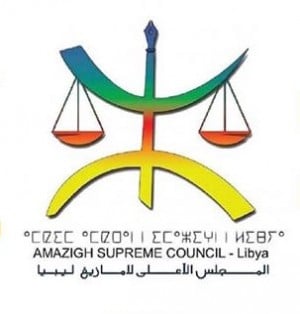By Sami Zaptia.
London, 1 February 2021:
The Amazigh Supreme Council (ASC) in Libya announced yesterday its irrevocable boycott of the planned referendum on the country’s draft constitution in the regions and cities affiliated to it, stressing that it is not bound by any results of this referendum.
It rejected the outcomes of Libya’s House of Representatives and High State Council joint legal committee meetings in the Egyptian city of Hurghada regarding the referendum on the draft constitution, considering that this draft is based on subduing rather than on consensus.
The ASC expressed its regret at what it described as the brothers in religion and the homeland disregarding their rights, threatening to take practical steps represented in creating a fourth administrative region and preparing a constitutional document for the Berbers.
They also affirmed their support for any constitution drafted and written inside the country without any external dictations and that meets the aspirations of the Libyan people with all its components.
It called on all Berbers to boycott the referendum on the draft constitution, and also called on Libya’s High National Election Commission (HNEC) to consider this statement as an official decision to exclude the regions it represents from the referendum.
UNSMIL, LPDF, referendum on the draft constitution and the 24 December 2021 elections
The declaration by the ASC highlights how complex and multi-layered Libya’s political situation is and why the country has been immersed in political quagmire since the 2011 revolution that overthrew the Qaddafi regime.
It will be recalled the 74-member UNSMIL-brokered Libyan Political Dialogue Forum (LPDF) has produced a political Roadmap for the country that entails choosing a new unified, temporary, interim government.
The LPDF started its five-day deliberations today in Geneva to select the new three-person Presidency Council and Prime Minister from a list of 45 candidates. Once chosen, this new Government of National Unity (GNU) will prepare the country for constitutionally based elections on 24 December 2021.
However, for these elections to be constitutionally based, the GNU must oversee in cooperation with the House of Representatives and the High State Council a referendum on the draft constitution.
The vexed draft constitution – rejection by Tebu and Amazigh
It will be recalled that the elected Constitutional Drafting Assembly (CDA) had initially presented the HoR with its latest draft constitution in July 2017, but a (lower) court ruling in the eastern city of Beida in August of the same year had prevented the HoR from debating/approving the draft.
However, the Supreme Court subsequently overturned that ruling in February 2018, clearing the way for the HoR to debate and vote on the draft constitution.
It must, nevertheless, also be kept in mind that the Amazigh boycotted the CDA elections in February 2014 and the two ethnically Tebu members of the CDA had not voted in favour of the ‘‘approved’’ draft constitution.
Under the existing voting rules, the constitution has to be accepted by at least one of the two CDA members from each of the three ethnic communities in Libya – the Amazigh, Tebu and Tuareg. In theory this voids the vote on the draft constitution. Nevertheless, the HoR chose to ignore this anomaly and proceed with adopting it.
Tough challenges lie ahead for a new GNU
However, this anomaly will now be faced by the new GNU and force the issue to a head. The GNU will only have until December this year to oversee a referendum on the draft constitution – whereas previous governments have failed to resolve this conundrum since 2017. At best, if the draft constitution is steamrolled by the HoR and HSC, it will subject it to a legal challenge.
HoR commences discussion of draft constitution and its referendum | (libyaherald.com)
CDA vote on draft constitution ruled invalid by Beida court | (libyaherald.com)
New draft constitution “gives everyone something and nobody everything” | (libyaherald.com)








